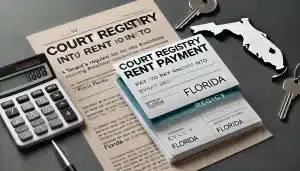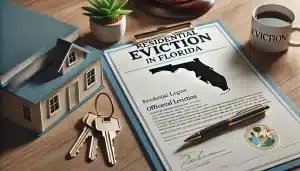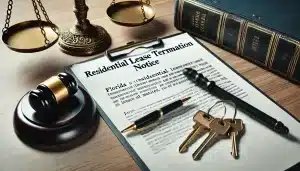
Law Blog
HOA Violations in Florida FAR/BAR Contracts: A Seller’s Guide

HOA Violations in Florida FAR/BAR Contracts: A Seller’s Guide
March 30, 2023 | Derek M. Jorgensen
Every homeowner’s association will have a set of governing documents, which include the declaration of covenants for the community, bylaws, articles of incorporation, and other rules and regulations made by the community. When a member of the association breaks one of the rules, they may receive a violation notice from the HOA board.
If a violation on the property is discovered while it is under Contract for sale, what happens? It is the Seller’s responsibility to cure it, right? When property is in a community with a homeowner’s association, the FAR/BAR contract should be accompanied with a Homeowner’s Association/Community Disclosure. Part B of the disclosure provides that Seller shall pay all fines imposed against the Seller or Property that exist as of the closing date. Easy enough, right? Except what happens if there is no fine yet but the property is in violation of the HOA? Does the Seller still need to remedy the violation? The answer to that question requires a closer reading of the Contract.
The Contract requires Seller to provide an affidavit at closing indicating there are no potential or pending claims/issues that could become a lien on the property. Often times, the governing documents of the association provide that fines are rolled into the assessments as a continuing lien against the Property. Therefore, if violations lead to fines, then the Seller cannot provide the affidavit because there could be potential or pending liens against the property, which means the Seller must cure the violation. Additionally, many homeowner’s associations require new buyers to be approved by the association. If there is a violation on the property, the HOA might not issue an approval until the violation is cured. If this happens and the Buyer is not approved, Buyer may be able to terminate the Contract and get their deposit back. So, if the Seller wants to close, they need to fix the violation.
The best way to erase any doubt as to what is expected of the parties is to simply add a provision in the Contract indicating that Seller will cure all HOA violations on the property prior to closing. This eliminates any gray area and ensures that Buyer purchases the property free from any violations on the property.
The information provided in this article does not, and is not intended to, constitute legal advice; instead, all information, content, and materials available in this article are for general informational purposes only. Information in this article may not constitute the most up-to-date legal or other information. Readers should contact an attorney to obtain advice with respect to any particular legal matter. No reader, user, or browser of this article should act or refrain from acting on the basis of information in this article without first seeking legal advice from counsel in the relevant jurisdiction. Only your individual attorney can provide assurances that the information contained herein – and your interpretation of it – is applicable or appropriate to your particular situation.
The views expressed at, or through, this site are those of the author writing in their individual capacity only – not those of Scott-Harris as a whole. All liability with respect to actions taken or not taken based on the contents of this site are hereby expressly disclaimed. The content on this posting is provided “as is;” no representations are made that the content is error-free.
recent post


Navigating Florida’s Residential Eviction Process | Landlord & Tenant Guide

Landlord Notice Requirements for Residential Lease Termination and Security Deposit Claims in Florida
recent post

Residential Eviction for Nonpayment in Florida | Tenant Court Registry Requirements

Navigating Florida’s Residential Eviction Process | Landlord & Tenant Guide









